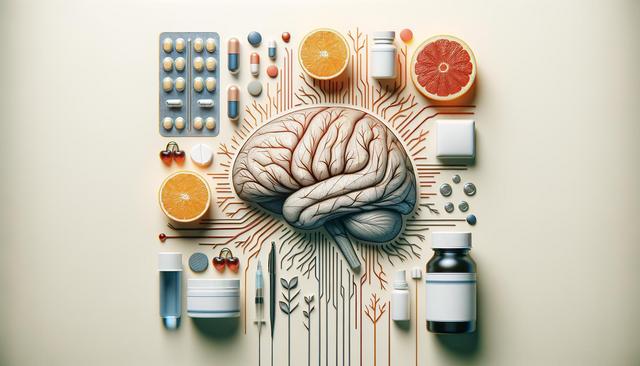Understanding the Link Between Medication and Stroke Risk
Medications can greatly improve health outcomes, but some come with potential side effects that require attention. One serious concern is the risk of stroke, which occurs when blood flow to the brain is disrupted, either by a clot or a bleed. While lifestyle factors like smoking and high blood pressure are well-known contributors, certain prescription and over-the-counter drugs have also been associated with an elevated risk. Understanding which medications may increase stroke risk is important for both patients and healthcare providers in making informed choices about treatment plans.
It’s worth noting that not everyone taking these medications will experience a stroke. The risk can vary based on personal health history, dosage, duration of use, and interactions with other drugs. Consulting with a healthcare provider before starting or stopping any medication is crucial. Risk awareness allows for proactive monitoring and, when necessary, adjustments to therapy to ensure that the benefits outweigh the potential harms.
Hormonal Medications and Stroke Risk
One category of drugs that has been linked to stroke is hormonal medications. These are often used for birth control, hormone replacement therapy, or other endocrine-related conditions. The risk is generally associated with the way these hormones interact with the body’s clotting mechanisms and blood pressure regulation.
Examples of hormonal medications that may increase stroke risk include:
- Oral contraceptives containing estrogen and progestin
- Hormone replacement therapy for menopause symptoms
- Some treatments for gender-affirming hormone therapy
The likelihood of stroke due to these medications tends to rise in individuals who smoke, are over 35, or have underlying cardiovascular conditions. In such cases, alternative non-hormonal options might be considered to mitigate risk, emphasizing the importance of individualized care decisions.
Blood Pressure Medications and Unexpected Effects
Ironically, some medications prescribed to manage blood pressure and heart conditions can, under certain circumstances, contribute to stroke risk. This is typically due to overly aggressive blood pressure reduction, which may impair blood flow to the brain, particularly in older adults or those with narrowed arteries.
Medications in this group include:
- Alpha-blockers, which can cause sudden drops in blood pressure
- Diuretics, especially when they lead to dehydration and electrolyte imbalance
- Vasodilators, which may cause reflex tachycardia and affect cerebral perfusion
Proper dosing and regular monitoring are essential when using these medications. Sudden changes in posture or activity, especially in those taking alpha-blockers, can lead to dizziness or fainting due to reduced cerebral blood flow, potentially resulting in a stroke-like event.
Stimulant Medications and Their Neurological Impact
Stimulant medications are commonly prescribed for attention deficit disorders and, in lower doses, for certain sleep disorders. However, these drugs can increase blood pressure and heart rate, which may strain blood vessels and increase the risk of both ischemic and hemorrhagic strokes, particularly in younger individuals or those with undiagnosed cardiovascular issues.
Common stimulant medications include:
- Drugs prescribed for attention deficit hyperactivity disorder (ADHD)
- Medications used for managing narcolepsy
- Some appetite suppressants
While the overall stroke risk remains low, it’s important for users of these medications to be screened for cardiovascular conditions before starting treatment. Sudden onset of headaches, changes in vision, or neurological symptoms should prompt immediate medical evaluation to rule out a stroke or transient ischemic attack.
Over-the-Counter and Non-Prescription Drugs
Many people assume over-the-counter (OTC) medications are completely safe due to their availability without a prescription. However, some OTC drugs can influence stroke risk, especially when taken frequently or in high doses. The risk may be compounded when these are used alongside other medications without professional guidance.
Examples include:
- Decongestants containing pseudoephedrine, which can elevate blood pressure
- Nonsteroidal anti-inflammatory drugs (NSAIDs), which, in long-term use, may affect blood clotting and vessel integrity
- High-dose aspirin, which can increase bleeding risk, particularly when combined with other blood thinners
Even commonly used medications should be taken with caution, especially by individuals with a history of cardiovascular disease or stroke. Reading labels, following recommended dosages, and discussing OTC use with a pharmacist or doctor can help minimize potential risks.
Psychiatric Medications and Cardiovascular Side Effects
Certain medications used to treat mental health conditions have also been associated with an increased risk of stroke, particularly in older adults. These drugs can affect blood pressure, heart rhythm, and metabolic functions, all of which play a role in stroke risk.
Medications in this category include:
- Antipsychotics, especially in elderly patients with dementia
- Some antidepressants, particularly those impacting serotonin and norepinephrine levels
- Mood stabilizers that can alter sodium balance or interact with other cardiovascular drugs
In many cases, the benefits of psychiatric medications outweigh the risks, but careful monitoring is essential. Regular health checkups, cardiovascular screenings, and adjustments in dosage or medication type can help reduce the likelihood of stroke while maintaining mental health stability.
Conclusion: Staying Informed and Proactive
Understanding the potential connection between certain medications and stroke risk is essential for anyone managing chronic conditions or taking long-term prescriptions. While the presence of risk does not mean a stroke will occur, it emphasizes the need for informed decision-making, open communication with healthcare providers, and regular health monitoring. Patients should never stop or adjust medications without professional guidance. Instead, being proactive—by learning about the medications you take, recognizing early warning signs, and attending routine medical checkups—can significantly reduce the likelihood of adverse outcomes. Informed patients are empowered patients, and that’s a vital step toward better health and stroke prevention.




Leave a Reply